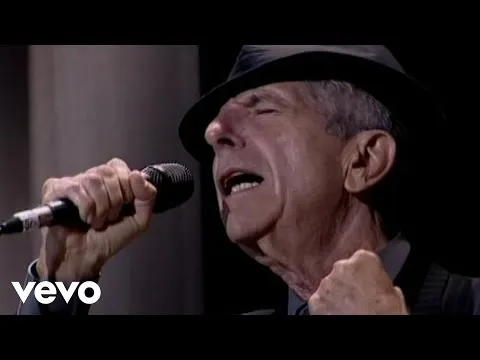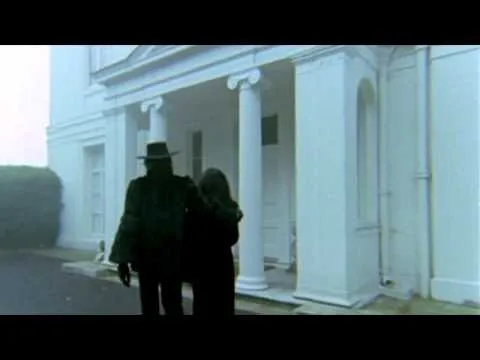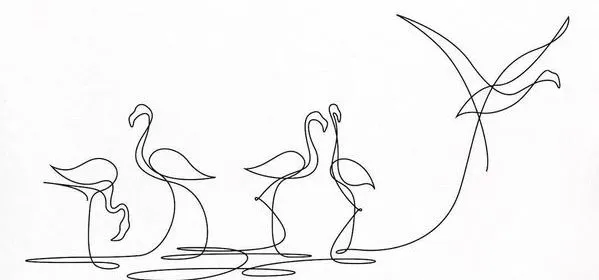
A miss is as good as a mile — Knapp daneben ist auch vorbei!
By the way, this is my first post in #threetunetuesday. A project started by @blaze. Why did I wait until now? To be perfectly honest, I can't really give you a plausible answer to that question. Maybe it was because I had the feeling that I had already sufficiently filled the musical space with the #jazz-matinee. But then, as we all know, opinions can be and are subject to change.
I have chosen a phenomenon that on the one hand amuses me and on the other makes me wonder as the motto for my introduction. It's the mystery of how songs that are known all over the world can enjoy such great popularity for decades, and yet the lyrics can be completely misinterpreted - and this over generations. Here are a couple of examples that are a good illustration of this.
Dies ist übrigens mein erster Beitrag für den #threetunetuesday. Ein Projekt, das von @blaze ins Leben gerufen wurde. Warum erst jetzt? Um ganz ehrlich zu sein, kann ich auf diese Frage keine plausible Antwort liefern. Möglicherweise, weil ich das Gefühl hatte, mit der #jazz-matinee bereits ausreichend den musikalischen Raum gefüllt zu haben. Doch Meinungen sind bekanntlich dafür da, um abgeändert zu werden.
Als Motto meines Einstiegs habe ich mir ein Phänomen herausgepickt, welches mich einerseits belustigt und dann doch wieder stutzig macht. Es ist das Mysterium, wie weltweit bekannte Songs sich über Jahrzehnte einer solch großen Beliebtheit erfreuen und dabei der Text vollkommen missinterpretiert wird – und dies über Generationen hinweg. Einige wenige Beispiele habe ich mir dafür ausgesucht.

There will be some music lovers out there who will be wondering what my choice of cover image is about. Quite simple - it is a reference to the summer of '69, which was so exciting for Brian Adams that he decided to dedicate a song to it. But there's a catch to this story, and it's a difficult one. Because Brian Adams was just 10 years old in the year 1969!
In the age of 10 - and this lyrics?
Me and some guys from school
Had a band and we tried real hard
Jimmy quit and Jody got married
I should've known we'd never get far
In response to a question about this contradiction, the Canadian singer revealed the real reason for the title: “It was the summer when a girl showed me for the first time what a 69 can feel like when it's horizontal.”
Now you can understand why he went straight out and got himself a guitar and set the event in musical stone.
Der eine oder andere Musikfreund wird sich die Frage stellen, was es mit dem von mir auserwählten Titelbild wohl auf sich hat? Ganz einfach – es bezieht sich auf den Sommer 69, den Brian Adams so spannend fand, dass er ihm ein Lied widmete. Nur hat die Geschichte einen Haken, an dem sie sich auch nur schwer aufhängen lässt. Denn Brian Adams war 1969 gerade einmal 10 Jahre alt! Und dann diese Zeilen?
Ich hatte eine Band mit paar Jungs von der Schule zusammen.
Wir haben geübt wie die Wilden,
Jimmy schmiss hin und Jody hat geheiratet
Ich hätte ahnen können, dass daraus nichts wird.
Auf diesen Widerspruch angesprochen, verriet der kanadische Sänger dann auch den eigentlichen Grund für den Titel: »Es war der Sommer, als mir ein Mädchen erstmals zeigte, wie sich eine 69 horizontal gelagert anfühlen kann.«
Nun kann man auch nachvollziehen, wieso er sich sofort eine Gitarre besorgte und das Ereignis musikalisch in Stein meißelte.


Next, I turn to a song without which no wedding, party or romantic tête-à-tête can take place. "Hallelujah". Whether in the original version by Leonard Cohen or in the version that has been covered countless times. This song is simply a melting of the soul.
But, folks, has anyone ever taken the trouble to listen carefully to what it is that Mr Cohen is actually reporting on? It's about, amongst others, King David's biblical adultery with Bathsheba, the wife of one of his companions, who tradition says he even killed after Bathsheba bore his child. Or Delilah, who wraps the hero Samson in her love and then fraudulently deprives him of his powers. And it is then that he comes to the following realisation: "But all I've ever learned from love — Was how to shoot at someone who outdrew you".
This is the kind of thing that everyone wants to hear on their wedding day!
Als nächstes wende ich mich einem Titel zu, ohne den keine Hochzeit, keine Fête oder romantisches Tête-à-Tête über die Bühne gehen kann. »Hallelujah«. Ob nun in der Originalfassung von Leonard Cohen oder als zig-fach gecoverte Version. Da schmilzt die Seele nur so dahin.
Aber Leute, hat einer sich je die Mühe gemacht und intensiv dem gelauscht, wovon Herr Cohen da eigentlich berichtet? Es geht es unter anderem um den biblischen Ehebruch des König Davids mit Bathseba, der Frau eines seiner Freunde, welchen er der Überlieferung nach sogar töten lässt, nachdem Bathseba ein Kind von ihm bekommt. Oder um Delilah, die den Helden Simson mit ihrer Liebe einwickelt, um ihn dann hinterlistig seiner Kräfte zu berauben. Und dann kommt er noch zur folgenden Erkenntnis: „Aber alles, was ich je von der Liebe gelernt habe - ist, wie man jemanden erschießt, der einen überholt hat“.
Exakt dies will jeder an seinem Hochzeitstag hören!


To round things off today, I'm particularly sorry to have clearing up any misunderstandings there may be about this song. We're talking about John Lennon, whose song "Imagine" has not only seduced the last of the uncaring fools on this planet into singing along, but has also lent him the feathers of the dove of peace.
The tiny little problem with that is - Lennon never had any intention of writing a slightly dreamy song for the peace in our world.
Imagine there′s no countries
It isn't hard to do
Nothing to kill or die for
And no religion too
Imagine no possessions
I wonder if you can
No need for greed or hunger
A brotherhood of man**
The artist himself brought clarity to this in an interview given while he was still alive: »I’ve always been politically minded, you know, and against the status quo. It’s pretty basic when you’re brought up, like I was, to hate and fear the police as a natural enemy and to despise the army as something that takes everybody away and leaves them dead somewhere. I mean, it’s just a basic working-class thing. In the song it says: ‘Imagine that there was no more religion, no more country, no more politics.’ This is virtually the Communist Manifesto, even though I’m not particularly a Communist and I do not belong to any movement.«
After the interview was published, the outrage did not seem to die down and Lennon was described in the press as a “champagne communist”. The man who had been so attacked rarely responded to questions about the song afterwards, but he did reveal that a communist manifesto with a bit of honey icing on it seemed to go down well with the people.
Zum heutigen Abschluss dann noch der Titel, bei dem es mir besonders leidtut, das eine oder andere Missverständnis aus dem Weg zu räumen. Die Rede ist von John Lennon, der mit seinem Song »Imagine« auch das letzte gefühllose Trampeltier auf diesem Planeten nicht nur zum Mitsingen verführte, sondern ihm auch das Gefieder der Friedenstaube auslieh.
Das winzig kleine Problem dabei - Lennon hatte überhaupt nie vor, ein leicht verträumtes Lied für den Weltfrieden zu schreiben.
Stell dir vor, es gäbe keine Landesgrenzen.
Es ist gar nicht so schwer.
Nichts wofür zu töten oder zu sterben es wert wäre.
Und auch keine Religionen.
Stell dir vor, es gäbe keine Besitztümer.
Ich bin gespannt ob du das kannst?
Es gäbe keine Habgier und keinen Hunger
Eine brüderliche Gesellschaft.
Der Künstler selbst schuf noch zu seinen Lebzeiten während eines Interviews für Klarheit: »Ich war schon immer politisch eingestellt, wissen Sie, und gegen den Status quo. Wenn man so aufgewachsen ist, wie ich, ist es ziemlich einfach, die Polizei als natürlichen Feind zu hassen und zu fürchten und die Armee als etwas zu verachten, das alles mitnimmt und an beliebiger Stelle tot zurücklässt. Ich meine, das ist einfach eine grundlegende Sache der Arbeiterklasse. In dem Lied heißt es: “Stell dir vor, es gäbe keine Religion, kein Land und keine Politik mehr.” Das ist praktisch das Kommunistische Manifest, obwohl ich nicht unbedingt ein Kommunist bin und keiner Bewegung angehöre.«
Nach der Publikation des Interviews schien die Empörung nicht abklingen zu wollen und Lennon bezeichnete man in der Presse als »Champagner-Kommunisten.« Der so Attackierte äußerte sich anschließend nur noch selten auf Fragen zu diesem Lied, verriet allerdings, dass ein kommunistisches Manifest mit etwas Honig-Glasur bei den Menschen gut anzukommen scheint.


